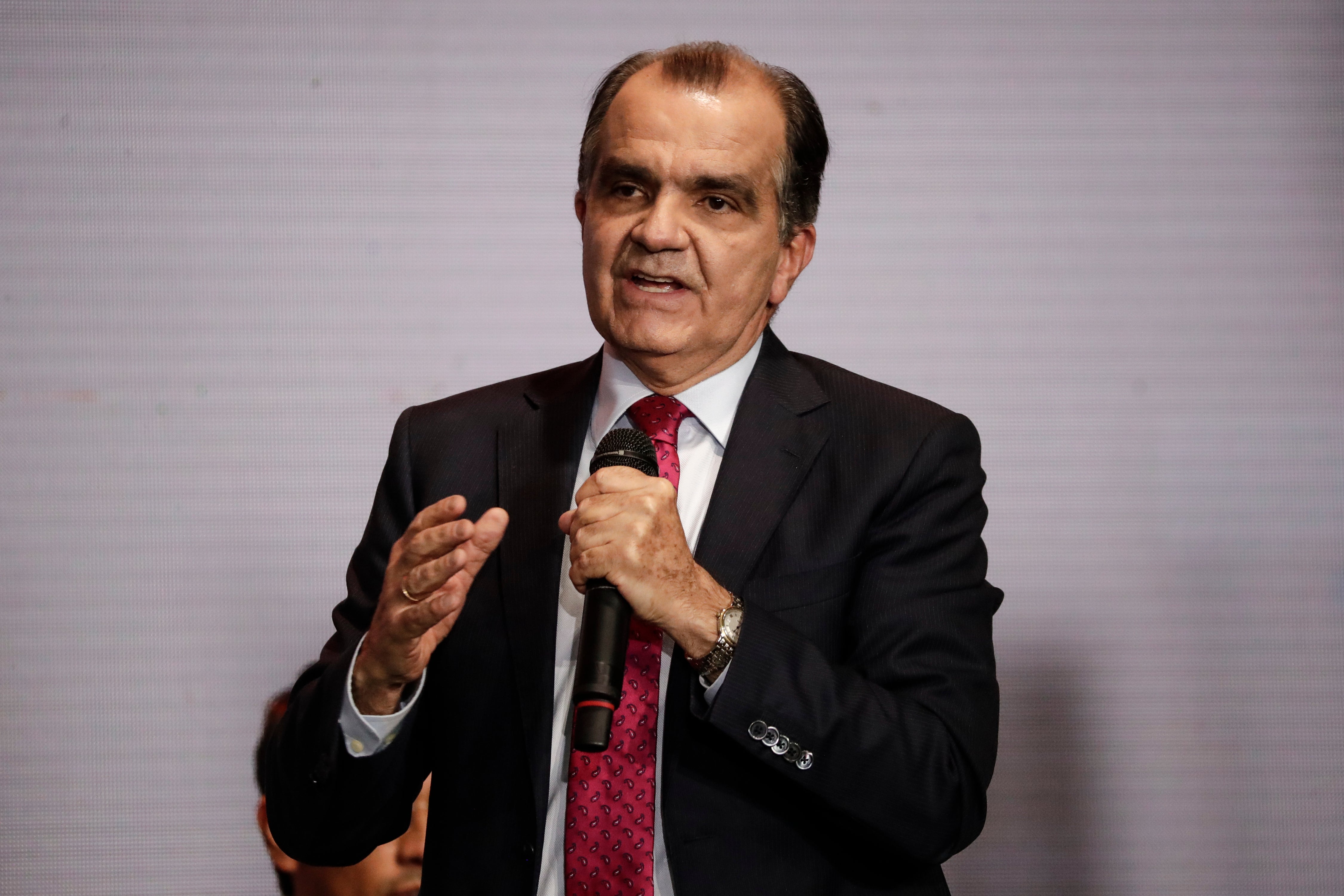Colombian prosecutors accuse former presidential candidate of taking money from Odebrecht
Colombian prosecutors have accused a former presidential candidate of receiving at least $2.8 million from Odebrecht, the Brazilian construction giant that has admitted paying bribes across Latin America to secure infrastructure contracts

Your support helps us to tell the story
From reproductive rights to climate change to Big Tech, The Independent is on the ground when the story is developing. Whether it's investigating the financials of Elon Musk's pro-Trump PAC or producing our latest documentary, 'The A Word', which shines a light on the American women fighting for reproductive rights, we know how important it is to parse out the facts from the messaging.
At such a critical moment in US history, we need reporters on the ground. Your donation allows us to keep sending journalists to speak to both sides of the story.
The Independent is trusted by Americans across the entire political spectrum. And unlike many other quality news outlets, we choose not to lock Americans out of our reporting and analysis with paywalls. We believe quality journalism should be available to everyone, paid for by those who can afford it.
Your support makes all the difference.Colombian prosecutors accused a former presidential candidate Monday of receiving at least $2.8 million from Odebrecht, the Brazilian construction giant that has admitted paying bribes across Latin America to secure infrastructure contracts.
Oscar Ivan Zuluaga, a former finance minister who came close to winning the 2014 election, was charged with fraud, illicit enrichment and falsification of documents. Charged at a public hearing that lasted four hours, Zuluaga pleaded innocent.
Prosecutors said Zuluaga met with Odebrecht executives prior to the 2014 presidential campaign and agreed to a scheme through which the construction company helped pay for the services of a political strategist, using accounts in Panama.
Officials said Zuluaga did not report the Odebrecht contributions with Colombia’s National Electoral Council, as required by law, and instructed his son, who was then his campaign manager, to hide those funds.
Zuluaga was a close ally of conservative Alvaro Uribe, who was president in 2002- 2010 and is still one of Colombia's most influential politicians. Uribe, who leads the Democratic Center Party, headed off a second presidential run by Zuluaga last year, expressing concern about his possible ties to Odebrecht.
The case raises new questions about Odebrecht’s involvement in Colombian politics, where the company has admitted to paying out at least $12 million in bribes to government officials and has been linked to several campaigns. Colombian prosecutors recently charged a former transport minister with illegally helping Odebrecht get contracts for the expansion of a highway.
In 2016, Odebrecht confessed in a New York federal court, that it had paid out almost $800 million in bribes to officials in 12 countries as it competed for public works contracts. The company, which helped build World Cup stadiums, airports and highways across the region, reached a plea deal with U.S. officials, in which it agreed to pay at least $3.5 billion in fines.
The plea deal spurred investigations in several Latin American countries, including Colombia, Ecuador and Peru. Peruvian prosecutors are still looking into Odebrecht’s ties to influential politicians that include former heads of state.
The company changed its name in 2020 and is now known as Novonor.